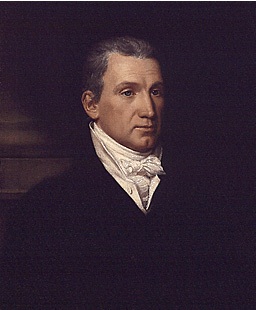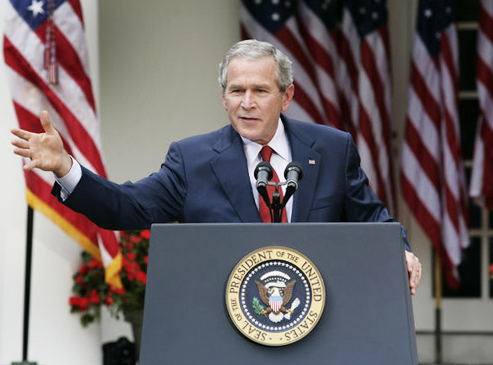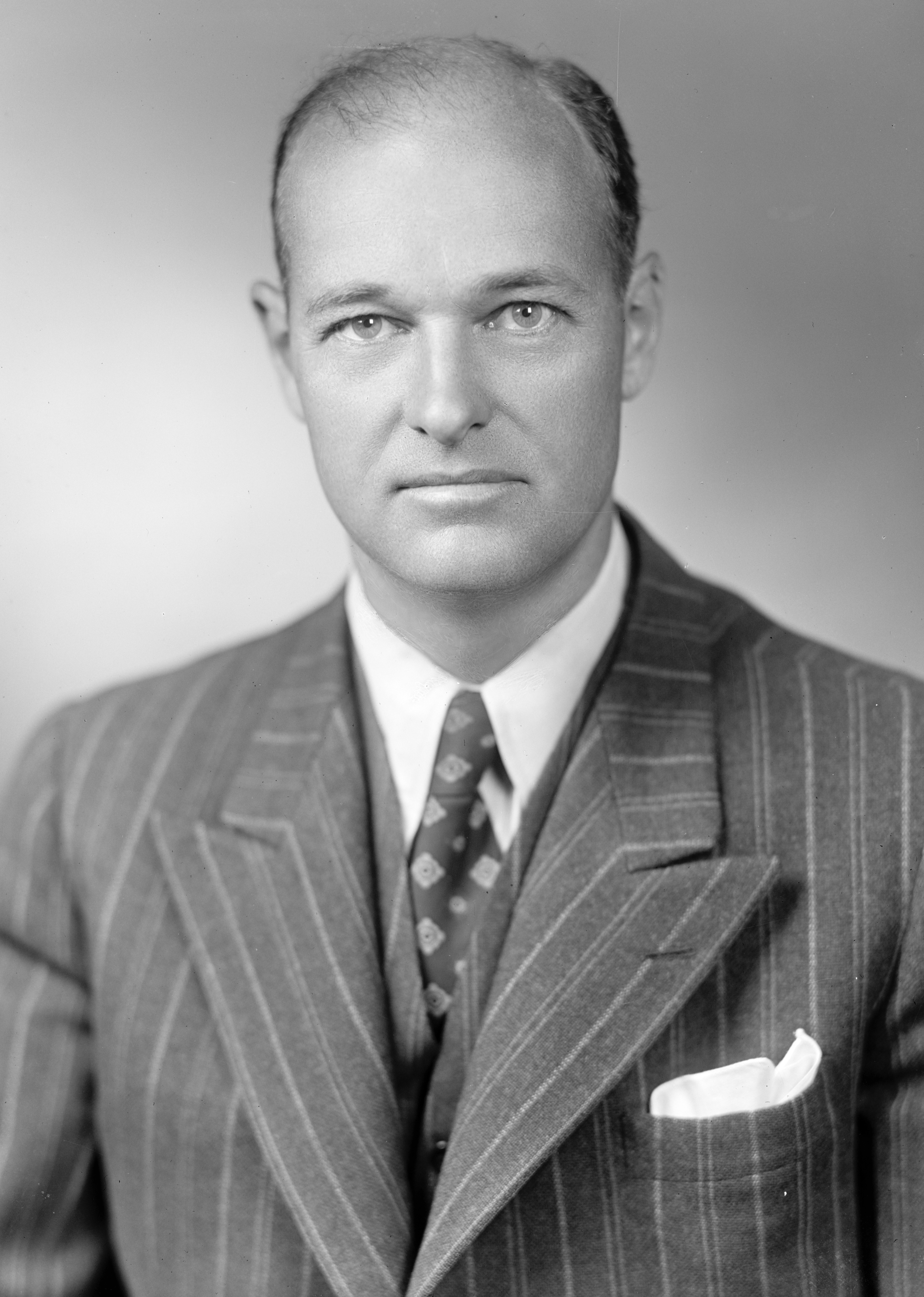|
Clinton Doctrine
The Clinton Doctrine is not an official government statement but an interpretation made by experts of the main priorities in the foreign policy of the Bill Clinton administration in the United States, 1993-2001. Clinton statements Various Clinton speeches have been proposed as texts for a doctrine. Thus, in a February 26, 1999, speech, President Bill Clinton said the following: :''It's easy ... to say that we really have no interests in who lives in this or that valley in Bosnia, or who owns a strip of brushland in the Horn of Africa, or some piece of parched earth by the Jordan River. But the true measure of our interests lies not in how small or distant these places are, or in whether we have trouble pronouncing their names. The question we must ask is, what are the consequences to our security of letting conflicts fester and spread. We cannot, indeed, we should not, do everything or be everywhere. But where our values and our interests are at stake, and where we can make a d ... [...More Info...] [...Related Items...] OR: [Wikipedia] [Google] [Baidu] |
United States Presidential Doctrines
A United States presidential doctrine comprises the key goals, attitudes, or stances for United States foreign affairs outlined by a president. Most presidential doctrines are related to the Cold War. Though many U.S. presidents had themes related to their handling of foreign policy, the term ''doctrine'' generally applies to presidents such as James Monroe, Harry S. Truman, Richard Nixon, Jimmy Carter and Ronald Reagan, all of whom had doctrines which more completely characterized their foreign policy. Presidential doctrines Monroe Doctrine The Monroe Doctrine, expressed in 1823, proclaimed the United States' opinion that European powers should no longer colonize the Americas or interfere with the affairs of sovereign nations located in the Americas, such as the United States, Mexico, Gran Colombia and others. In return, the United States planned to stay neutral in wars between European powers and in wars between a European power and its colonies. However, if these latter t ... [...More Info...] [...Related Items...] OR: [Wikipedia] [Google] [Baidu] |
Anthony Lake
William Anthony Kirsopp Lake (born April 2, 1939) is an American diplomat and political advisor who served as the 17th United States National Security Advisor from 1993 to 1997 and as the 6th Executive Director of UNICEF from 2010 to 2017. He has been a foreign policy advisor to many Democratic U.S. presidents and presidential candidates, and served as National Security Advisor under U.S. President Bill Clinton from 1993 to 1997. Lake is credited as being one of the individuals who developed the policy that led to the resolution of the Bosnian War. He also held the chair of Distinguished Professor in the Practice of Diplomacy at the Edmund A. Walsh School of Foreign Service at Georgetown University, in Washington, D.C. Early life Lake is the grandson of Kirsopp Lake, a member of the Church of England clergy who came from Oxford, England, to America in 1914 to teach New Testament studies at Harvard. Lake's father, Gerard Kirsopp Lake, was a New Deal Democrat, and his mother, Elea ... [...More Info...] [...Related Items...] OR: [Wikipedia] [Google] [Baidu] |
1999 In International Relations
File:1999 Events Collage.png, From left, clockwise: The Death and state funeral of King Hussein, funeral procession of King Hussein of Jordan in Amman; the 1999 İzmit earthquake kills over 17,000 people in Turkey; the Columbine High School massacre, one of the first major List of school shootings in the United States by death toll, school shootings in the United States; the Year 2000 problem ("Y2K"), perceived as a major concern in the lead-up to the year 2000; the Millennium Dome opens in London; online music downloading platform Napster is launched, soon a source of Online piracy, online piracy; NASA loses both the Mars Climate Orbiter and the Mars Polar Lander; a destroyed t-55, T-55 tank near Prizren during the Kosovo War., 300x300px, thumb rect 0 0 200 200 Death and state funeral of King Hussein rect 200 0 400 200 1999 İzmit earthquake rect 400 0 600 200 Columbine High School massacre rect 0 200 300 400 Kosovo War rect 300 200 600 400 Year 2000 problem rect 0 400 200 600 Mars ... [...More Info...] [...Related Items...] OR: [Wikipedia] [Google] [Baidu] |
Presidency Of Bill Clinton
Bill Clinton's tenure as the 42nd president of the United States began with his first inauguration on January 20, 1993, and ended on January 20, 2001. Clinton, a Democrat from Arkansas, took office following a decisive election victory over Republican incumbent president George H. W. Bush and independent businessman Ross Perot in 1992. Four years later, in 1996, he defeated Perot again (then as the nominee of the Reform Party) and Republican nominee Bob Dole, to win re-election; in neither ballot did he obtain a majority of the popular vote. Clinton was succeeded by Republican George W. Bush, who won the 2000 presidential election. The nation experienced an extended period of economic prosperity during the Clinton presidency. While the economy remained strong, his presidency oscillated dramatically from high to low and back again, which historian Gil Troy characterized in six Acts. Act I in early 1993 was "Bush League" with amateurish distractions. By mid-1993 Clinton had ... [...More Info...] [...Related Items...] OR: [Wikipedia] [Google] [Baidu] |
History Of The Foreign Relations Of The United States
History (derived ) is the systematic study and the documentation of the human activity. The time period of event before the invention of writing systems is considered prehistory. "History" is an umbrella term comprising past events as well as the memory, discovery, collection, organization, presentation, and interpretation of these events. Historians seek knowledge of the past using historical sources such as written documents, oral accounts, art and material artifacts, and ecological markers. History is not complete and still has debatable mysteries. History is also an academic discipline which uses narrative to describe, examine, question, and analyze past events, and investigate their patterns of cause and effect. Historians often debate which narrative best explains an event, as well as the significance of different causes and effects. Historians also debate the nature of history as an end in itself, as well as its usefulness to give perspective on the problems of the p ... [...More Info...] [...Related Items...] OR: [Wikipedia] [Google] [Baidu] |
Reagan Doctrine
The Reagan Doctrine was stated by United States President Ronald Reagan in his State of the Union address on February 6, 1985: "We must not break faith with those who are risking their lives—on every continent from Afghanistan to Nicaragua—to defy Soviet-supported aggression and secure rights which have been ours from birth." It was a strategy implemented by the Reagan Administration to overwhelm the global influence of the Soviet Union in the late Cold War. The doctrine was a centerpiece of United States foreign policy from the early 1980s until the end of the Cold War in 1991. Under the Reagan Doctrine, the United States provided overt and covert aid to anti-communist guerrillas and resistance movements in an effort to " roll back" Soviet-backed pro-communist governments in Africa, Asia, and Latin America. The doctrine was designed to diminish Soviet influence in these regions as part of the administration's overall strategy to win the Cold War. Background The Reagan D ... [...More Info...] [...Related Items...] OR: [Wikipedia] [Google] [Baidu] |
Obama Doctrine
The Obama Doctrine is a catch-all term frequently used to describe one or several principles of the Foreign policy of the Barack Obama administration, foreign policy of U.S. President Barack Obama. It is still not agreed whether there was an actual Obama Doctrine. Nevertheless, in 2015, during an interview with ''The New York Times'', Obama briefly commented about the doctrine saying: "You asked about an Obama doctrine, the doctrine is we will engage, but we preserve all our capabilities". Unlike precisely-defined policies such as the Monroe Doctrine, Truman Doctrine, Kennedy Doctrine, Nixon Doctrine, Carter Doctrine, Reagan Doctrine, or Bush Doctrine, the Obama Doctrine is not a specific foreign policy introduced by the executive. This has led journalists and political commentators to analyze what the exact tenets of an Obama Doctrine might look like. Generally speaking, it is widely accepted that a central part of such a doctrine would emphasize negotiation and collaboration rat ... [...More Info...] [...Related Items...] OR: [Wikipedia] [Google] [Baidu] |
Carter Doctrine
The Carter Doctrine was a policy proclaimed by President of the United States Jimmy Carter in his State of the Union Address on January 23, 1980, which stated that the United States would use military force, if necessary, to defend its national interests in the Persian Gulf. It was a response to the Soviet Union's intervention in Afghanistan in 1979, and it was intended to deter the Soviet Union, the United States' Cold War adversary, from seeking hegemony in the Persian Gulf region. The following key sentence, which was written by Zbigniew Brzezinski, President Carter's National Security Adviser, concludes the section: Let our position be absolutely clear: An attempt by any outside force to gain control of the Persian Gulf region will be regarded as an assault on the vital interests of the United States of America, and such an assault will be repelled by any means necessary, including military force. Brzezinski modeled the wording on the Truman Doctrine, and insisted the sent ... [...More Info...] [...Related Items...] OR: [Wikipedia] [Google] [Baidu] |
Bush Doctrine
The Bush Doctrine refers to multiple interrelated foreign policy principles of the 43rd President of the United States, George W. Bush. These principles include unilateralism, preemptive war, and regime change. Charles Krauthammer first used the phrase in June 2001 to describe the Bush administration's "unilaterally withdrawing from the ABM treaty and rejecting the Kyoto protocol." According to Charles Krauthammer, who was the first to use it in June 2001, the phrase has had four distinct meanings, each one succeeding another over the eight years of the George W. Bush presidency: firstly, unilateralism, i.e., unilaterally withdrawing from the Anti-Ballistic Missile Treaty and rejecting the Kyoto Protocol; secondly, after 9-11-2001, the "with us or against us" policy on terror; thirdly, a doctrine of pre-emptive war, e.g., Iraq; and fourthly, the idea that the fundamental mission of American foreign policy is to spread democracy throughout the world. After the 9/11 attack, ... [...More Info...] [...Related Items...] OR: [Wikipedia] [Google] [Baidu] |
George Kennan
George Frost Kennan (February 16, 1904 – March 17, 2005) was an American diplomat and historian. He was best known as an advocate of a policy of containment of Soviet expansion during the Cold War. He lectured widely and wrote scholarly histories of the relations between the USSR and the United States. He was also one of the group of foreign policy elders known as " The Wise Men". During the late 1940s, his writings inspired the Truman Doctrine and the U.S. foreign policy of "containing" the Soviet Union. His "Long Telegram" from Moscow during 1946 and the subsequent 1947 article '' The Sources of Soviet Conduct'' argued that the Soviet regime was inherently expansionist and that its influence had to be "contained" in areas of vital strategic importance to the United States. These texts provided justification for the Truman administration's new anti-Soviet policy. Kennan played a major role in the development of definitive Cold War programs and institutions, notably the Marsha ... [...More Info...] [...Related Items...] OR: [Wikipedia] [Google] [Baidu] |
Henry Kissinger
Henry Alfred Kissinger (; ; born Heinz Alfred Kissinger, May 27, 1923) is a German-born American politician, diplomat, and geopolitical consultant who served as United States Secretary of State and National Security Advisor under the presidential administrations of Richard Nixon and Gerald Ford. A Jewish refugee who fled Nazi Germany with his family in 1938, Kissinger excelled academically, receiving his BA degree '' summa cum laude'' from Harvard College in 1950, studying under William Yandell Elliott. He received his MA and PhD degrees at Harvard University in 1951 and 1954, respectively. For his actions negotiating a ceasefire in Vietnam, Kissinger received the 1973 Nobel Peace Prize under controversial circumstances. A practitioner of ''Realpolitik'', Kissinger played a prominent role in United States foreign policy between 1969 and 1977, pioneering the policy of détente with the Soviet Union, orchestrating an opening of relations with the People's Republic o ... [...More Info...] [...Related Items...] OR: [Wikipedia] [Google] [Baidu] |
Civilian Control Of The Military
Civilian control of the military is a doctrine in military and political science that places ultimate responsibility for a country's strategic decision-making in the hands of the civilian political leadership, rather than professional military officers. Civilian oversight over militaries, mainly used in democratic governments, puts the power to take military action in the hands of a civilian leader or legislative agency. Allowing the civilian component of government to retain control over the military or state security shows a healthy respect for democratic values and good governance. Giving power to the civilian component of the government over what the military can do and how much money it can spend protects the democratic process from abuse. Nations that can achieve legitimate relationship between the two structures serves to be more effective and provide accountability between government and military. Security relies on both sides compromising on the civilian and security ... [...More Info...] [...Related Items...] OR: [Wikipedia] [Google] [Baidu] |


.jpg)




.jpg)